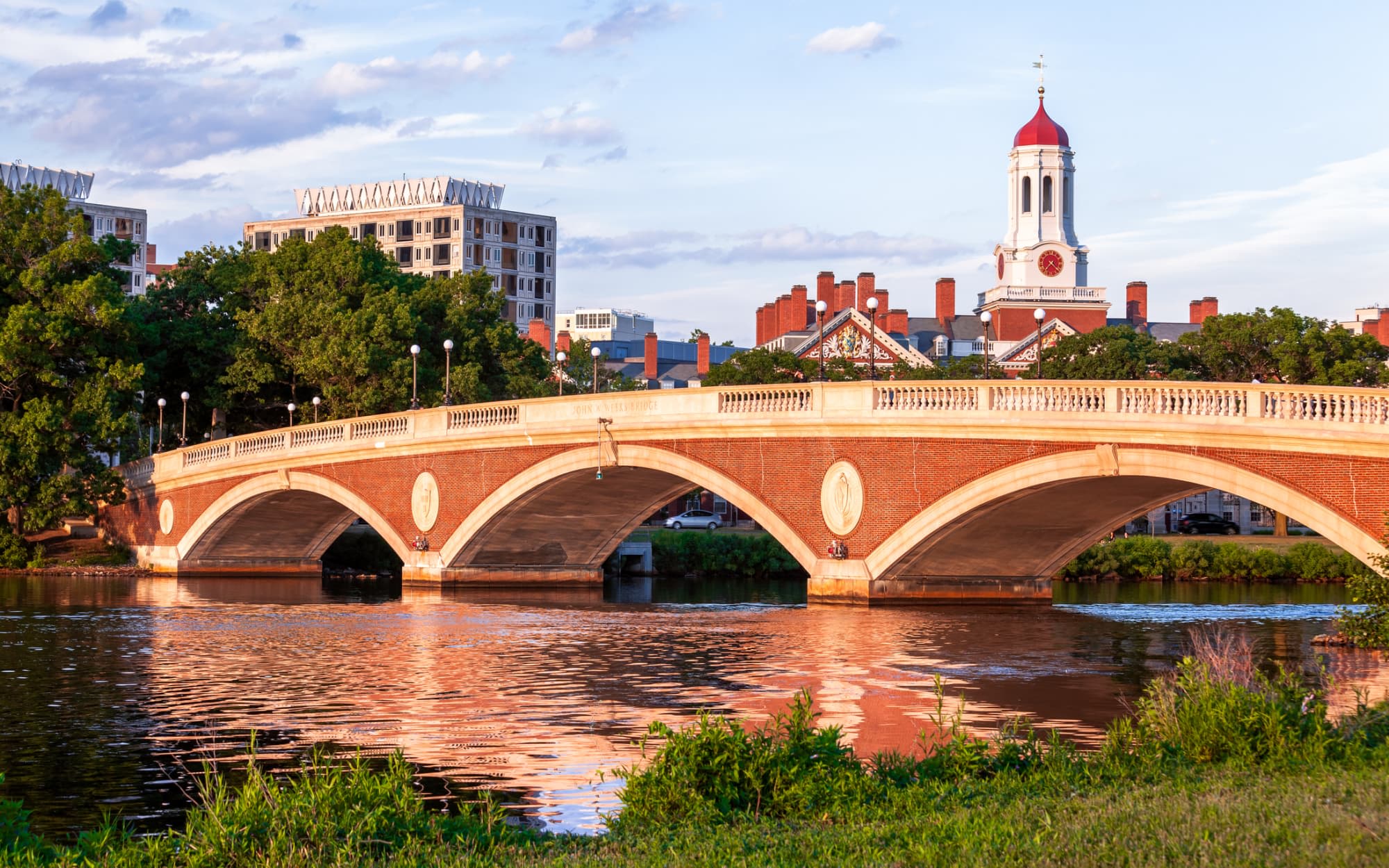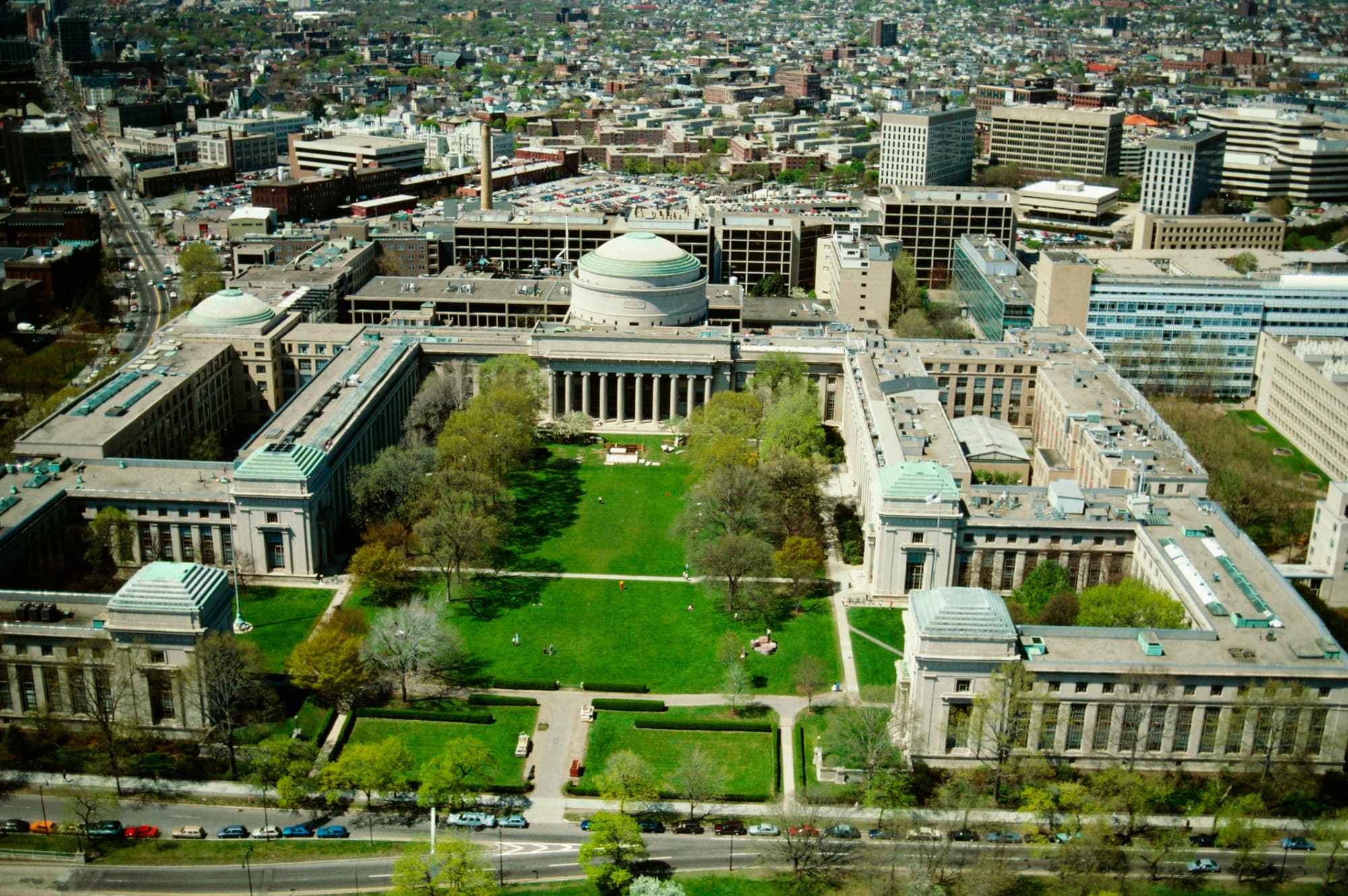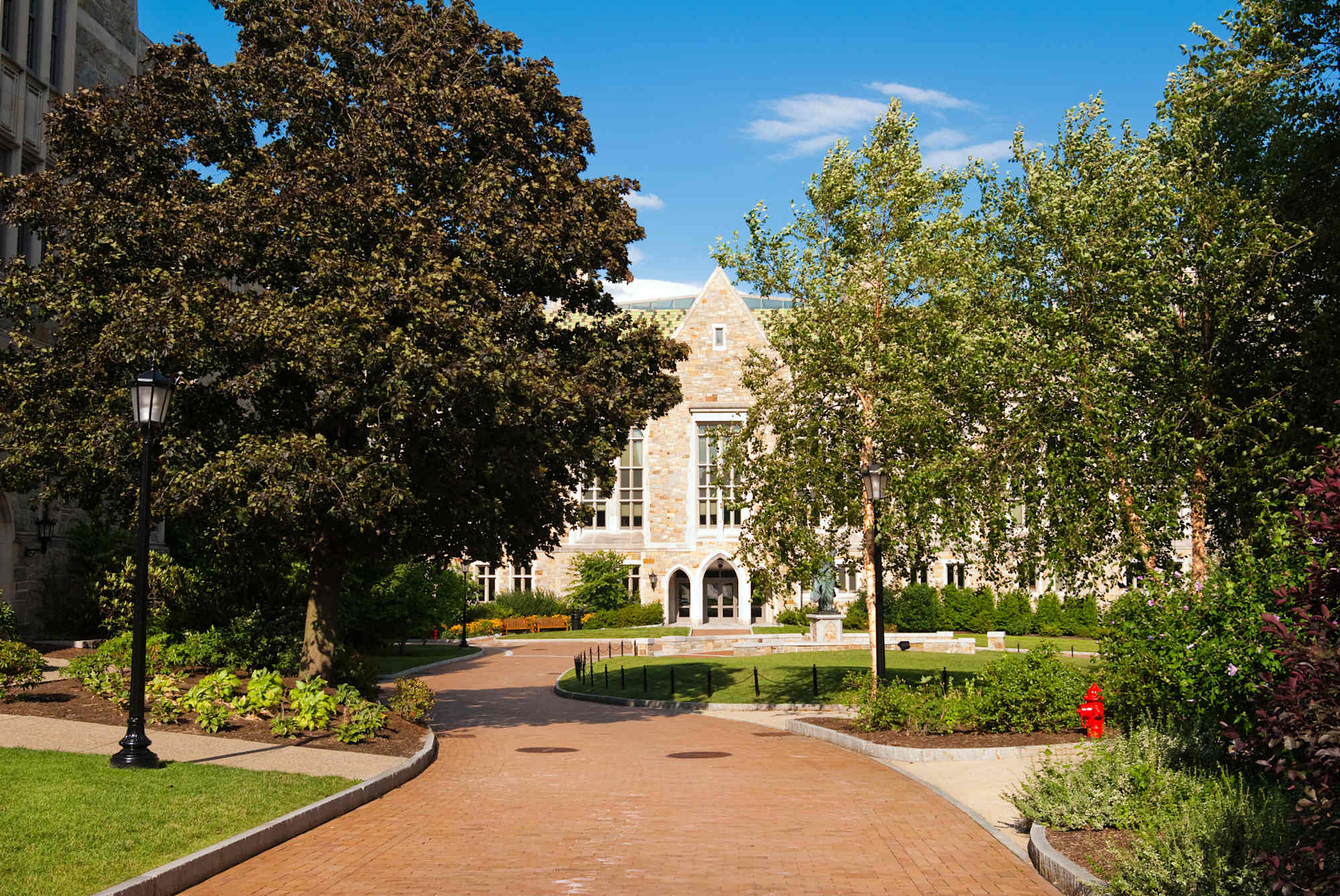Business Schools in Massachusetts: Full List of MBA Programs
Hospitals, defense contractors, and technology firms make up Massachusetts’ biggest employers. MBA programs in Massachusetts offer the education necessary to pursue top management positions in these and other fields.
Massachusetts is home to some of the best business schools in the world, including Harvard Business School and MIT’s Sloan School of Business. Prospective MBA students can choose from a wide selection of prestigious programs in the state.
Top MBA programs feature coursework in finance, marketing, and leadership. The broad curriculum helps you develop transferable skills relevant to different industries and management positions.
3 Popular Business Schools in Massachusetts
Three popular business schools in Massachusetts include Harvard University, the Massachusetts Institute of Technology, and Boston College. We’ve highlighted these schools for their popularity among applicants and high academic quality.

Harvard University
The first MBA degree-granting institution in the world, the Harvard Business School (HBS) opened its doors in 1907. This program takes two years to complete. HBS uses a cohort curriculum where you and 90 other students take classes together.
The core curriculum features coursework in data science for managers, finance, and financial reporting and control. Hands-on team projects and case studies help you connect the curriculum to real-world business practices.
MBA Specializations
- Accounting and Management
- Government and the International Economy
- Entrepreneurial Management
- Finance
- Marketing
- Organizational Behavior
- Technology and Operations Management
Application Requirements
- Undergraduate transcripts
- Three essays
- GRE or GMAT scores
- Two recommendation letters
- Resume
- An interview
- A post-interview reflection
Learn about start dates, transferring credits, availability of financial aid, and more by contacting the universities below.

Massachusetts Institute of Technology
Founded in 1914, The MIT Sloan School of Management (MIT Sloan) educates 1,300 undergraduate and graduate students. The standard MBA program uses a cohort learning model with core classes in economic analysis for business decisions, organization processes, and financial accounting.
Instead of traditional specializations, MIT Sloan offers graduate certificates in seven areas. Each certificate requires extensive hands-on experience and a 45-credit curriculum. The emphasis on action learning helps you develop skills transferable to many career paths.
MBA Specializations
- Analytics
- Entrepreneurship and Innovation
- Enterprise Management
- Finance
- Healthcare
- Product Management
- Sustainability
Application Requirements
- Official transcripts
- GRE or GMAT scores
- Short answer question
- Cover letter
- Resume
- Video interview
- One recommendation letter
- Two extra references
- Organizational chart from current employer

Boston College
BC’s Carroll School of Management educates over 1,000 graduate students, and over 90% of learners complete an internship after their first year of study. Full-time students graduate in two years, while part-time students can earn their degrees in three years. Nearly 100% of graduates find a job within three months of earning a degree.
The core curriculum features marketing and financial management classes. Coursework in data analytics helps you develop in-demand skills. After the first semester, you work with an advisor to select electives aligning with your career goals.
MBA Specializations
- Fully Customizable
- MBA/MSF
Application Requirements
- Transcripts
- GRE or GMAT scores
- One recommendation letter
- One essay
- Resume
Full List of MBA Programs in Massachusetts
BestColleges’ full list of MBA programs in Massachusetts features degrees with programmatic accreditation from one of three agencies:
- Association to Advance Collegiate Schools of Business (AACSB)
- Accreditation Council for Business Schools and Programs (ACBSP)
- International Accreditation Council for Business Education (IACBE)
On-campus and online MBAs in Massachusetts with programmatic accreditation offer a rigorous educational experience training degree-seekers in the latest industry best practices. The AACSB, ACBSP, and IACBE websites feature detailed information on how they evaluate the best business schools in Massachusetts.
All Business Schools in Massachusetts
| School⇅ | City⇅ | Type⇅ | Accreditation⇅ |
|---|---|---|---|
| Lasell University | Newton | Private | ACBSP |
| Massachusetts College of Liberal Arts | North Adams | Public | ACBSP |
| American International College | Springfield | Private | IACBE |
| Anna Maria College | Paxton | Private | IACBE |
| Curry College | Milton | Private | IACBE |
| Elms College | Chicopee | Private | IACBE |
| Fisher College | Boston | Private | IACBE |
| Fitchburg State University | Fitchburg | Public | IACBE |
| Framingham State University | Framingham | Public | IACBE |
| Massachusetts Maritime Academy | Buzzards Bay | Public | IACBE |
Why Earn Your MBA in Massachusetts?
The U.S. government has prioritized the Massachusetts economy in recent years, with the government investing more than $3 billion into the state’s infrastructure and encouraging businesses to make the state their home. An increased number of business applications and a reduced unemployment rate show promising signs for Massachusetts’ business climate.
As a result, pursuing an MBA in the Bay State could lead to plentiful opportunities to become a part of the growing economy. Home to widely known Fortune 500 companies like Liberty Mutual, BJ’s Wholesale, and Keurig Dr. Pepper, Massachusetts offers a diverse business landscape across multiple industries.
Students can pursue MBAs at leading business schools in Massachusetts, such as Northeastern and the UMass Amherst, to jumpstart their careers. Eligible MBA students attending a qualifying public college or university may qualify for a state tuition waiver to offset their educational costs. The Massachusetts Board of Education has also moved to increase financial aid funding for higher education.
MBA Cost in Massachusetts
The National Center for Education Statistics (NCES) reports that MBA students paid an average of around $31,300 a year in 2020. Keep in mind that this figure represents an average of many schools’ undergraduate and graduate tuition rates.
You need to research more than tuition rates to discover how much an MBA costs. MBA programs in Massachusetts’ costs of attendance (COA) include textbooks and other education-related expenses.
You can reduce your COA by exploring online MBA programs in Massachusetts. Online degrees may offer cost advantages over traditional on-campus programs. You should also submit the FAFSA to see if you qualify for federal grants or low-interest loans.
MBA Jobs in Massachusetts
In addition to the benefits that government infrastructure funding brought to the Massachusetts economy, the state offers several business tax credits and an Economic Development Incentive Program to encourage business and economic growth.
Some of the best industries for MBA graduates are top sectors in Massachusetts, like financial services and information technology. These industries pave the way for high-paying careers with promising outlooks, such as financial managers, accountants, and general and operations managers.
Massachusetts cities like Boston and Springfield offer tech-focused, innovative climates that attract new startups and entrepreneurs. Worcester has also been climbing the ladder as a thriving place for business with its booming manufacturing and scientific research sectors.
| Job | Massachusetts Average Annual Salary (May 2023) |
|---|---|
| Financial Managers | $192,040 |
| Human Resources Managers | $185,650 |
| Marketing Managers | $180,120 |
| Sales Managers | $172,390 |
| Public Relations Managers | $170,600 |
| Purchasing Managers | $163,560 |
| Training and Development Managers | $158,710 |
| General and Operations Managers | $149,870 |
| Fundraising Managers | $152,010 |
| Administrative Services Managers | $137,250 |
Frequently Asked Questions About Business Schools in Massachusetts
Yes, as UMass Boston is considered a good business school and it holds AACSB accreditation. AACSB considers many factors when reviewing business schools in Massachusetts, such as ethics and societal impact. The organization also prefers business schools dedicated to continuous improvement, diversity, and global engagement.
Note: The insights on this page were reviewed by an independent third party compensated for their time by BestColleges. Page last reviewed July 2, 2024.



